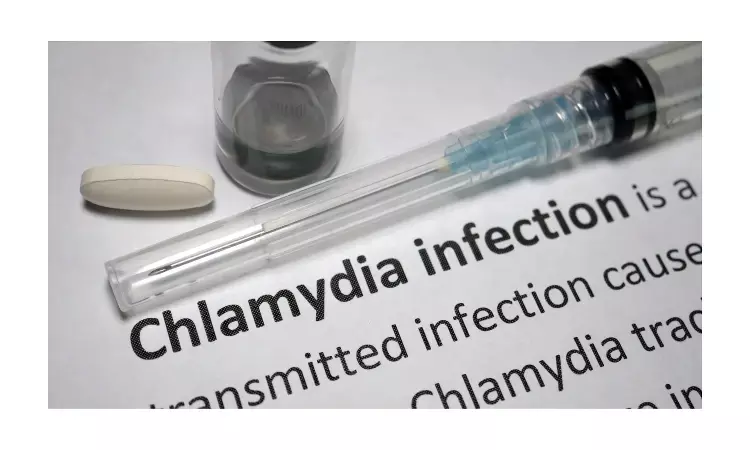- Home
- Medical news & Guidelines
- Anesthesiology
- Cardiology and CTVS
- Critical Care
- Dentistry
- Dermatology
- Diabetes and Endocrinology
- ENT
- Gastroenterology
- Medicine
- Nephrology
- Neurology
- Obstretics-Gynaecology
- Oncology
- Ophthalmology
- Orthopaedics
- Pediatrics-Neonatology
- Psychiatry
- Pulmonology
- Radiology
- Surgery
- Urology
- Laboratory Medicine
- Diet
- Nursing
- Paramedical
- Physiotherapy
- Health news
- Fact Check
- Bone Health Fact Check
- Brain Health Fact Check
- Cancer Related Fact Check
- Child Care Fact Check
- Dental and oral health fact check
- Diabetes and metabolic health fact check
- Diet and Nutrition Fact Check
- Eye and ENT Care Fact Check
- Fitness fact check
- Gut health fact check
- Heart health fact check
- Kidney health fact check
- Medical education fact check
- Men's health fact check
- Respiratory fact check
- Skin and hair care fact check
- Vaccine and Immunization fact check
- Women's health fact check
- AYUSH
- State News
- Andaman and Nicobar Islands
- Andhra Pradesh
- Arunachal Pradesh
- Assam
- Bihar
- Chandigarh
- Chattisgarh
- Dadra and Nagar Haveli
- Daman and Diu
- Delhi
- Goa
- Gujarat
- Haryana
- Himachal Pradesh
- Jammu & Kashmir
- Jharkhand
- Karnataka
- Kerala
- Ladakh
- Lakshadweep
- Madhya Pradesh
- Maharashtra
- Manipur
- Meghalaya
- Mizoram
- Nagaland
- Odisha
- Puducherry
- Punjab
- Rajasthan
- Sikkim
- Tamil Nadu
- Telangana
- Tripura
- Uttar Pradesh
- Uttrakhand
- West Bengal
- Medical Education
- Industry
Doxycycline better than azithromycin for treating Chlamydia trachomatis infection in MSM

Chlamydia trachomatis infection is the most commonly reported sexually transmitted infection (STI) in the United States, with approximately 2.8 million infections reported annually.
A new study by Dr Mary B. Keegan, MD and team reported that Azithromycin and doxycycline are both recommended treatments for rectal Chlamydia trachomatis (CT) infection however doxycycline was significantly more effective than a single dose of azithromycin for the treatment of rectal CT in men who have sex with men (MSM).
This study is published in Clinical Infectious Diseases.
The objective of the study was to determine whether Azithromycin and doxycycline, which is a better drug to treat Chlamydia trachomatis infection.
The study was a randomized, double-blinded, placebo-controlled trial compared azithromycin (single 1-g dose) versus doxycycline (100 mg twice daily for 7 days) for the treatment of rectal CT in men who have sex with men (MSM) in Seattle and Boston. Participants were enrolled after a diagnosis of rectal CT in clinical care and underwent repeated collection of rectal swabs for nucleic acid amplification testing (NAAT) at study enrollment and 2 weeks and 4 weeks post enrollment. The primary outcome was microbiologic cure (CT-negative NAAT) at 4 weeks. The complete case (CC) population included participants with a CT-positive NAAT at enrollment and a follow-up NAAT result; the intention-to-treat (ITT) population included all randomized participants.
The results of the study were found to be
• A total of 177 participants were enrolled in the study, 135 (76%) met CC population criteria for the 4-week follow-up visit. Thirty-three participants (19%) were excluded because the CT NAAT repeated at enrollment was negative.
• Microbiologic cure was found to be higher with doxycycline than azithromycin in both the CC population (100% [70 of 70] vs 74% [48 of 65]; absolute difference, 26%; 95% confidence interval [CI], 16–36%; P < .001)
• The ITT population (91% [80 of 88] vs 71% [63 of 89]; absolute difference, 20%; 95% CI, 9–31%; P < .001).
Dr. Keegan and team concluded that "A 1-week course of doxycycline was significantly more effective than a single dose of azithromycin for the treatment of rectal CT in MSM."
For further information: https://academic.oup.com/cid/article-abstract/73/5/824/6144986
Medical Dialogues consists of a team of passionate medical/scientific writers, led by doctors and healthcare researchers. Our team efforts to bring you updated and timely news about the important happenings of the medical and healthcare sector. Our editorial team can be reached at editorial@medicaldialogues.in.
Dr Kamal Kant Kohli-MBBS, DTCD- a chest specialist with more than 30 years of practice and a flair for writing clinical articles, Dr Kamal Kant Kohli joined Medical Dialogues as a Chief Editor of Medical News. Besides writing articles, as an editor, he proofreads and verifies all the medical content published on Medical Dialogues including those coming from journals, studies,medical conferences,guidelines etc. Email: drkohli@medicaldialogues.in. Contact no. 011-43720751


